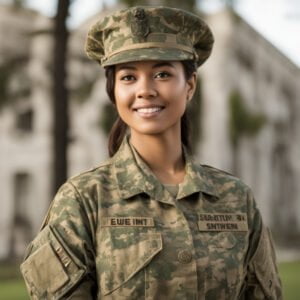Women University Students Who Served in the Military: Navigating Dual Identities

Women who have served in the military and are now university students embody a unique and inspiring blend of strength, discipline, and resilience. In this article, we explore the challenges they face, the strengths they bring to academia, and the impact of their experiences on career choices.
The Dual Identity of Women University Students with Military Service
Transitioning from a military to an academic environment is a significant life change. Women university students with military service often face challenges unique to their dual identity, balancing the demands of academic life while navigating a male-dominated environment.
Overcoming Challenges: Strengths of Women University Students with Military Service
Discipline and Work Ethic
The military instills a sense of discipline and work ethic that sets these women apart in academic settings. Their ability to handle pressure and deadlines is a testament to their training.
Leadership Skills
Military service hones leadership skills, making these women natural leaders in group projects, extracurricular activities, and beyond.
Resilience and Adaptability
Having faced diverse challenges during military service, these women exhibit remarkable resilience and adaptability, crucial traits for success in academia.
Navigating Academia: A Closer Look
Balancing Academic and Military Responsibilities
Juggling coursework, exams, and military obligations can be demanding. Yet, these women find ways to excel in both areas, showcasing their exceptional time management skills.
Support Systems for Women Veterans on Campus
Recognizing the unique needs of women veterans, universities have established support systems, including counseling services and veteran-specific resources.
The Impact on Career Choices
Career Paths Chosen by Women University Students with Military Service
Many pursue careers in fields like leadership, management, and public service, leveraging their military background for success.
Opportunities and Advantages in the Job Market
Employers value the skills gained through military service, providing these women with unique advantages in the job market.
Breaking Stereotypes: Stories of Success
Personal Stories of Women University Students who Served in the Military
Sharing personal narratives highlights the diversity of experiences and challenges faced by these women.
Contributions to the Academic Community
Beyond individual achievements, their presence enriches the academic community by adding diverse perspectives.
Challenges Still Faced: A Realistic Perspective
Addressing the Gender Gap
While progress has been made, challenges persist in addressing the gender gap in both military service and academia.
Mental Health Challenges and Support Systems
Some women veterans may face mental health challenges, emphasizing the need for robust support systems on campuses.
Building a Supportive Community
Networking Opportunities for Women University Students with Military Service
Networking events, both within the university and broader veteran communities, foster connections and opportunities.
Mentorship Programs
Establishing mentorship programs helps guide these women through their academic and professional journeys.
Conclusion
Women university students who served in the military bring a unique and valuable perspective to higher education. Their experiences, strengths, and contributions enhance the academic environment, inspiring others and breaking down stereotypes.
FAQs
How common is it for women to serve in the military and then pursue higher education?
The number of women veterans pursuing higher education is growing, reflecting a positive trend of inclusivity.
What challenges do women university students with military service typically face?
Challenges may include balancing academic and military responsibilities, navigating a male-dominated environment, and addressing mental health concerns.
How do these students balance academic and military responsibilities?
Time management, discipline, and adaptability are key factors that help these women effectively balance their academic and military commitments.
Are there specific career paths that these women tend to pursue after graduation?
Many gravitate towards careers in leadership, management, public service, and fields where their military background is an asset.
What support systems are available for women veterans on college campuses?
Universities offer counseling services, veteran-specific resources, and networking opportunities to provide comprehensive support for women veterans.

